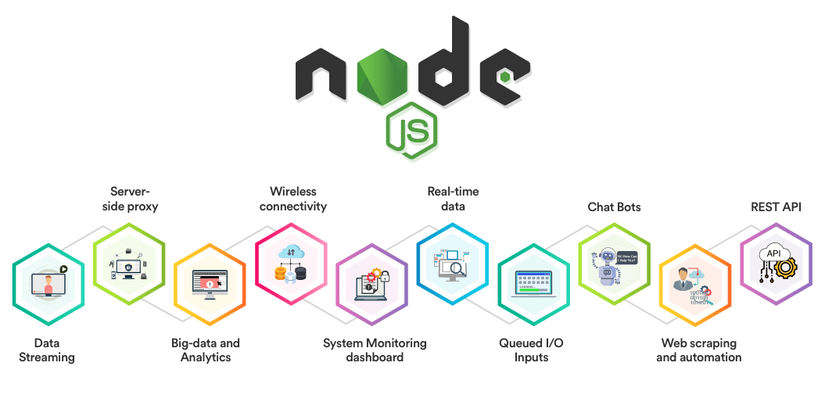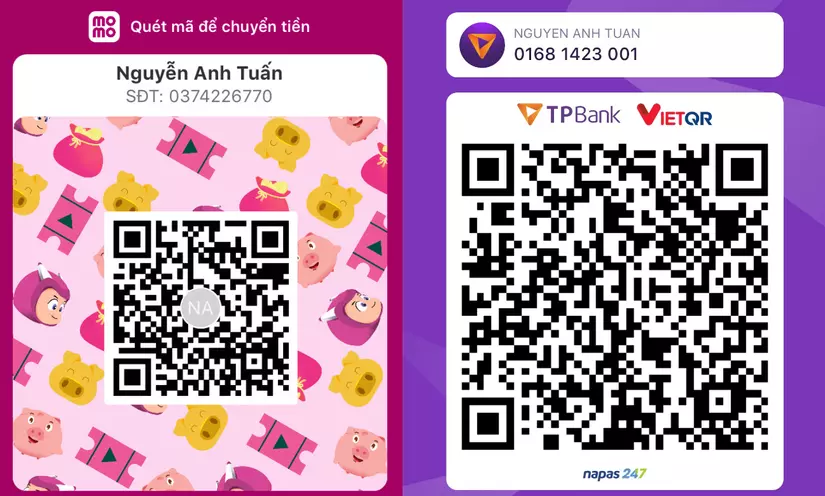7 Things 🤔 You Should Know to Become a Better Node.js Developer
Bài đăng này đã không được cập nhật trong 2 năm
To become a better Node.js developer, you need to have a combination of technical knowledge, following best practices, and having good interpersonal skills. Here are some suggestions to help you improve your Node.js development abilities:
1. Learn the basic concepts of JavaScript.
If you want to become a better Node.js developer, it is important to have a good understanding of JavaScript, since Node.js is based on JavaScript. Here are some resources to help you learn the basics of JavaScript.
- JavaScript for Beginners — a comprehensive tutorial on the basics of JavaScript, including variables, data types, functions, and control structures.
- MDN Web Docs: JavaScript — a comprehensive resource on JavaScript, with documentation on all aspects of the language, including its syntax, operators, and objects.
- Eloquent JavaScript — a free online book that provides a detailed introduction to JavaScript and its features.
2. Master asynchronous programming
Node.js is good at dealing with lots of requests and connections at the same time, which is done using a type of programming called asynchronous programming. Here are some links to help you learn how to do asynchronous programming with Node.js.
- Asynchronous programming in JavaScript — a tutorial on asynchronous programming in JavaScript, including callbacks, promises, and async/await.
- Node.js asynchronous programming — a tutorial on asynchronous programming in Node.js, including the event loop, callbacks, and promises.
- Understanding the Node.js Event Loop — an in-depth article on how the Node.js event loop works and how it enables asynchronous programming.
3. Use Node.js modules
Node.js has many tools that can help you create applications quickly and easily. Some of the most popular tools used in Node.js development are:
- Express — a popular web framework for Node.js that makes it easy to build web applications. Once you have learned this well — Look into Nest, Koa, and Next, among others.
- Socket.io — a library that enables real-time, bidirectional communication between clients and servers.
- Mongoose — an Object Data Modeling (ODM) library for MongoDB that provides a higher-level abstraction for interacting with the database.
- PM2 — a process manager for Node.js that makes it easy to manage and deploy Node.js applications.
These are some links that can help you understand how to use Node.js modules:
- Express.js tutorial — a comprehensive tutorial on building a web application using Express.
- Socket.io tutorial — a tutorial on building a real-time chat application using Socket.io.
- Mongoose documentation — comprehensive documentation on using Mongoose for database interactions.
- PM2 documentation — a quick start guide to using PM2 for process management.

4. Follow best practices
It is important to follow the recommended guidelines when writing code in Node.js in order to make it easier to read and keep up with. Here are some tips for writing good Node.js code:
- Use a modular code structure: Organize your code into separate modules to make it more manageable and reusable.
- Use error handling: Proper error handling can help you identify and resolve issues in your code.
- Avoid blocking I/O operations: Blocking I/O operations can cause performance issues, so use asynchronous I/O operations instead. Use linters and formatters: Linters can help you identify potential problems in your code, while formatters can help you maintain consistent coding styles. Some popular tools for Node.js development include ESLint, Prettier, and StandardJS.
These are some tools that can help you use the best practices when developing with Node.js.
- Node.js Best Practices — a comprehensive guide to best practices for Node.js development, including code organization, error handling, and testing.
- ESLint — a popular linter for JavaScript that can help you identify and fix issues in your code.
- Prettier — a tool for formatting your code that can help you maintain consistent coding styles.
- StandardJS — a popular coding style guide and linter for JavaScript.
5. Make sure you are aware of the newest features.
It is important to keep up with the latest changes and updates to Node.js so that you can use the best tools and techniques for developing with Node.js. Here are some resources to help you stay informed about the latest changes and updates to Node.js.
- Node.js Release Schedule — the Node.js release schedule, with information on upcoming releases and their features.
- Node.js Changelog — the Node.js changelog with information on the features and improvements in each release.
- Node.js Blog — the Node.js blog, with news and updates on Node.js development.
- Node Weekly — a weekly newsletter with news and updates on Node.js development.
6. Practice and build projects
To become a better Node.js developer, it is recommended to practice by building projects. Here are some ideas to help you practice your Node.js development skills.
- A web application using Express.js and MongoDB
- A real-time chat application using Socket.io
- A RESTful API using Node.js and Express
- A command-line tool using Node.js
These are some links that can help you create projects using Node.js.
- Node.js Documentation — the official documentation for Node.js, with information on its core features and modules.
- Node.js Tutorials — a collection of tutorials on Node.js development, including web development, testing, and deployment.
- The Net Ninja Node.js Tutorial Series — a video tutorial series on Node.js development, covering topics like web development, MongoDB, and authentication.
7. Keep learning over time.
It is important for Node.js developers to keep learning new technologies, trends, and practices in order to stay up-to-date with the quickly changing web development environment. Here are some resources to help you stay informed.
- Node.js Foundation — the Node.js Foundation is a community-led organization that supports the development and growth of Node.js.
- Node.js YouTube Channel — the official YouTube channel for Node.js, with videos on Node.js development and best practices.
- FreeCodeCamp Node.js Course — a free course on Node.js development and Express.js web framework offered by FreeCodeCamp.
In summary, to become a better Node.js developer, you should:
- Understand the basics of JavaScript and its related concepts.
- Understand the basics of Node.js and its ecosystem.
- Write modular and efficient code, and use the appropriate libraries and frameworks.
- Follow best practices for Node.js development, including using linters and formatters.
- Stay up-to-date with the latest features and improvements in Node.js.
- Practice building projects.
- Continuously learn and stay up-to-date with the latest trends, technologies, and practices in Node.js and web development.
If you put in the time and effort to learn and practice Node.js, you can become a better developer and create applications that meet the needs of your users.
Mình hy vọng bạn thích bài viết này và học thêm được điều gì đó mới.
Donate mình một ly cafe hoặc 1 cây bút bi để mình có thêm động lực cho ra nhiều bài viết hay và chất lượng hơn trong tương lai nhé. À mà nếu bạn có bất kỳ câu hỏi nào thì đừng ngại comment hoặc liên hệ mình qua: Zalo - 0374226770 hoặc Facebook. Mình xin cảm ơn.
Momo: NGUYỄN ANH TUẤN - 0374226770
TPBank: NGUYỄN ANH TUẤN - 0374226770 (hoặc 01681423001)
All rights reserved
